Hello ji,
Once upon a time, there was LGBT. A few years later, it became LGBTQ. As the years went by, the letters kept coming. At last count, it was LGBTQIAP+ (Lesbian Gay Bisexual Transgender Queer Intersex Asexual Pansexual and a '+' which means 'not limited to').
Now, as someone who would like to think of themselves as what the community calls 'an ally' (translation: a decent human being), I am so proud that we are naming, acknowledging, and making space for all identities. But - if I am being completely honest - it has also gotten a bit daunting to stay updated with the latest terms, abbreviations, and politically correct language. It came to a point that I realized I was quite terrified of speaking on these issues for fear of using the wrong words and offending someone.
June is Pride Month. And in a wonderful happenstance, I e-met Chitra on a group this month. Chitra is an IIMA alumnus, the co-founder of IIM Ally (the IIMA queer resource group), and a vocal advocate of queer rights. She also happens to be a trans woman herself.
Over this week, Chitra and I spoke for over 3 hours (33000 words as per my transcript) and exchanged hundreds of texts as part of my ongoing education in trans issues.
In today's post, I want to share what I learned from Chitra and her story, and hope it helps you as much as it has helped me.
Before we begin
One of the biggest insights for me this week was this: When you mention that someone is a trans woman, it often makes most men wonder "Would I ever be able to give up being a man and live as a woman?" Chitra taught me that the problem starts right here.
"The correct thought experiment would be if men compared themselves with trans men and imagined, 'What would it be like if I had been raised as a girl? What if I was forced into wearing a dress, or forced to keep long hair and, again, went through the wrong puberty?' If you are a woman, think, 'What would it be like if I had been raised as a man?' Forget for a minute the buffet of male privilege that will come your way - think about being forced into extreme expectations of masculinity with respect to your body and personality. Things like, 'What if my face was covered in facial hair, excessive body hair? What if I had to go through puberty as a man?'"
So, as you read Chitra's story below, put yourself in her shoes only if you are a woman. Men can try to imagine the reverse and get a sense of what life is like for a trans man instead.
Gender identity
This is the part where I point out my own errors from the last three paragraphs. Wherever I have written 'men', I should have written 'cis men'. Wherever I used 'women', I should have used 'cis women'. Chitra explains why:
"The concept of gender identity, itself, applies to everyone. Essentially, it says, that whatever gender identity you are assigned at birth - when the doctor says 'its a girl' or 'its a boy' - once you grow up, you need to actively agree with it in your head, instead of just passively taking it as a given.
If you do actively agree with the gender assigned to you at birth, you are what is called a 'cisgender' man or woman (colloquially referred to as a cis man or cis woman).
If you don't agree with it, then you are a 'transgender' person by definition. This could include:
A trans woman - someone who is assigned male at birth but identifies as a woman.
A trans man - someone who is assigned female but identifies as a man.
Non-binary people of all kinds, who say 'I don't agree with the assigned gender but I don't necessarily identify with the opposite gender either.' This includes people who call themselves gender queer or gender fluid or agender.”
What is gender dysphoria, and what does it feel like?
The self-discovery of oneself as a trans person usually begins with a feeling that you do not actively agree with the gender assigned to you at birth. This is called gender dysphoria. Chitra says that there are two aspects to dysphoria - the physical aspect and the social aspect.
"The social aspect is mainly about how those around you refer to you - what name they use for you, what pronouns they use for you (do they refer to you as he/him when you would want to be referred to as she/her), what kinds of tasks that are expected of you, and so on."
"In my case, thankfully, my parents just let me be as I was, without trying to fit any social expectations of what a 'boy' should be like. I was always this bookish kid, and they never forced me into sports etc. to 'be a boy'. I also happened to have a name that might have worked for both genders. So, I was just able to park my social dysphoria aside as a kid. If an adult had been hostile towards me, forcing some notion of how 'boys' should be on me, I would have been far more miserable."
On the physical side, however, things were far from easy for Chitra.
“I was sent to a boys school all along, and once we entered teenage, boys would discuss the changes happening during puberty. They would take great pride in the first few facial hair, or their voice dropping, etc. But for me, puberty felt like chickenpox. I saw everyone in class getting it and I thought, 'Oh, that's so bad, I wish it wouldn't happen to me'. But of course, it happened. And when it did, I just gave up. I thought, dejected, 'Okay, so this is what I really have to live with, for the rest of my life'. What other boys took pride in made me miserable. Physical dysphoria feels like a deep disconnect between your brain and your body."
With no conversations happening around gender identity in India in the 1990s, there was no way for her to figure out that the dysphoria she was experiencing as a child had a name.
"There wasn't even a vocabulary available at that time in India - let alone a hope of acceptance. If I had said anything, I might have been made to go through electroshock therapy to 'cure' me. So I just pushed those feelings down and learned to imitate my friends in terms of how boys talked, how they behaved, the jokes they laughed at, etc. This can be a much tougher experience for someone in whom the signs of dysphoria are more pronounced, as evidenced by the bullying that even slightly effeminate boys face at school and college. But I was able to survive a boys school and an IIT because I was able to convincingly ape all the usual behavior boys show."
However, being able to convincingly act like a typical boy on the outside did not mean that Chitra's dysphoria went away.
"I lived what seemed like a ‘regular’ life. But inside my head, there was a constant, low-grade feeling of depression. I was just going through life doing whatever I thought was expected of me. At times, I would have suicidal ideation. I did not actually attempt suicide, thankfully, but I would feel like it would be better if some accident or some illness took me away - something easier for my family to process than suicide. Basically, I didn't think of my life as inherently valuable in any way."
Coming out
Chitra lived like this for decades. She kept herself busy with life's big milestones - IIT, IIM, marriage, Ph.D. - until there was no denying her truth anymore.
"At the age of 31, I finally accepted what I was dealing with. It seems late in life but I know people who live their entire lives without ever accepting their truth. A friend of mine is a doctor who is herself trans. She shared that a terminally ill patient of hers came out only to her, but not to their family. So she was not able to call the patient by the right name and pronouns in front of the family, but would use them in private. She said that the patient's face would light up with joy even the few times this happened, before they ultimately passed away. So, there are cases like that - people you might know - whose entire lives are spent living a lie."
A few days after coming out to herself, Chitra came out to her then spouse.
"We had loved each other for almost a decade, and had been married a few years by this point. She trusted and supported me completely. We decided to figure this out together. Her support meant everything. We began by reaching out to a therapist who specialized in gender."
"A few months later, once I felt a little more comfortable with the idea, I came out to my parents. Thankfully, they did not dismiss it outright. But they took their time. For two years after this, we did not discuss it again. And then, once I was transitioning, my mother finally said, 'Okay I will call you my daughter from now on.' She took a couple of weeks to adjust to it, but then started addressing me as her daughter using the right pronouns. A few months later, my father came on board as well. It has been about four years, and they have totally accepted me as their daughter now, even while talking about past events."
"After my parents and my brother, a few close relatives also followed suit. And that's enough for me. The same happened with my friends - a few were immediately supportive, most came on board eventually over the years, and some have stopped speaking to me entirely - which is good because it has helped me realize who my true friends are."
The Transition
A few months before she came out to herself and her then-spouse, Chitra began growing her hair out.
"I decided to keep the long hair for good. Just before coming out, I had learned about HRT (hormone replacement therapy), laser hair removal, and the surgical options available to trans women. I would wish that someone would just flip a switch and suddenly turn me into a woman, without any of the social issues and consequences. But that is obviously not the reality that we live in."
In the real world, there is a strong history of physical violence against trans people in public spaces. They can lose their jobs, their partners, their homes - everything that comes with the package deal of not fitting into society's definitions of 'normal'. It was a difficult choice.
"I would wonder - what if I can't deal with those consequences? What if I give up in between? Finally, I decided to just take things one by one. I was already growing my hair out. I decided to at least try one session of laser. After that session, when I felt that my skin was soft and smooth, I realized that I definitely want this and I'm willing to go through whatever pain to be able to feel like this all the time. And, so I finally went ahead with the HRT and the transition."
"As I transitioned, I also started feeling more at peace with myself. That was when I knew that I had taken the right decision and that I can never go back. It almost felt like there was this whole person inside me who had been imprisoned all these decades, and was finally getting out now."
The Bureaucracy
It should come as no surprise to anyone that our government systems and processes are not exactly the paragons of trans-inclusivity.
"Government processes are tough for everyone. But with trans people, there is a different degree of policing altogether. Government officials will simply refuse to change your paperwork even if you follow all processes. They will say things like, 'No, no, why do you want to change your name? This name is of this gender. Why would you change your gender?' Until 2014, they would actually ask for proof of what was considered a ‘complete’ transition, with the surgeon's letter and everything. That excluded people who could not afford the surgeries. You also need a psychiatrist's sign-off. After the NALSA judgment in 2014 by the Supreme Court of India, all this was no longer mandatory, as everyone had the right to self-identify their gender, at least on paper.”
“However, even in 2017, when a trans woman friend visited a psychiatrist in a renowned mental health institution, he said to her, 'You have to come to me in a sari or salwar-suit and wear jewelry and makeup if you want to be a woman.' These standards are no longer even enforced on cis women! And yet, fully qualified trained psychiatrists from reputed institutions behave like this with trans people."
New name, new pronouns
Once a trans person comes out socially - whether or not they have physically transitioned - one needs to address them with the pronouns they prefer. In fact, it is a sign of an ally to declare your own pronouns publicly - even as a cis person - so that declaring pronouns does not become an identifier for trans people.
"That is why it is becoming a norm to mention your pronouns in your email signature, social media profile, etc. At the same time, it should not be mandated and enforced to such a degree that it forces a closeted trans person to either declare pronouns that they are not comfortable with, or out themselves before they are ready. Before I came out, I was not comfortable with male pronouns (he/his) and so I would just avoid pronouns altogether, even while talking about myself.”
Sometimes people feel it is too much work to keep pronouns in mind when referring to trans people. I asked Chitra why the right pronouns are so important:
"Well, it is important to everyone, isn't it? If you call a cis man 'she' or a cis woman 'he', they will not like it. A common transphobic slur is to refer to trans people as 'it'. That is something that people with pets don't even accept for animals. If you misgender someone's pet, they will correct you and you will keep that in mind in the future. Why can't we do the same for human beings?"
Another issue that comes up in our conversation is 'deadnaming' a trans person, i.e. using the name that they used before they transitioned.
"Legal name change is a big hassle, but it should not matter as far as social conventions are concerned. Once a trans person has mentioned their chosen name socially, that is what we should call them by. When celebrities change their names because of numerology - people may even make fun of them - but even then these changes are respected and media reports stick to those new names and spellings. If we are willing to respect a name changed for superstition, why not respect it when it is a matter of someone’s entire identity?"
There is also a curiosity that people have about wanting to know a trans person's deadname.
"Yeah, there is a whole voyeuristic curiosity there when people want to ask, 'What was your name earlier? Show me photos of what you looked like?' I think that people need to realize that there is a reason trans people don't want to use their old name or share old pictures. There can be strong negative feelings associated with the past. So we need to respect those feelings."
Transphobia and public spaces
We also spoke about the physical violence trans people face in public spaces.
"As a trans woman, my family's safety depends on how well I am able to pass for a cis woman. If a stranger can't tell that I am trans just by looking at me, then I can go to parks and restaurants with my child, I can use public transport, restrooms, etc without fear of violence. For people who do not have this ‘passing privilege’, there is a constant threat of violence in public places."
Right from the early days of her transition, Chitra noticed a change in how safe she felt in public.
"Wherever we went, people would stare and heads would turn in my direction. Until then, I had always been the one who would stare back at men staring at my spouse. As I transitioned, she started playing that role for me. She would say that she visibly saw things becoming unsafe for me."
"I was lucky that I was financially independent and living on campus. I am also tall and fair and would often carry my child in a baby carrier in that early phase of being on HRT. So I have had the luxury of avoiding the most dangerous forms of attention, violence, and abuse. But it is the reality for an overwhelming majority of trans people. Almost every trans person I know has had to deal with someone or the other creating problems for them - either their families or neighbours or landlords or even random men on the street and in public transport."
Workplaces are another domain where transphobia is rampant and that limits employment avenues for trans people.
"Even in a so-called accepting place, trans people may be asked during job interviews if the hormones affect their capacity to work. What does that imply? Trans women on HRT may have the same hormone levels as cis women, so are we saying that all women are too emotional to work? Trans men on HRT may have the same hormone levels as cis men, so would we say that all men are too aggressive to work? So this assumption that somehow trans people are less efficient at work is basically flawed."
Losing her (so-called) privilege
Chitra read my last piece on mansplaining and said that people might say that the experience of trans people is proof that these biases exist.
"As people who have seen life 'from both sides', we know that these things are true. Trans women say that, after transitioning, they see themselves just getting ignored in conversations, interrupted, and mansplained. Trans men say that they suddenly start getting taken more seriously by people who don't know that they are not cis men.”
I laughed and asked her how she feels about having gone from the peak of privilege - as a cisgender, heterosexual man - to the bottom of it - as a transgender, homosexual woman.
"Yeah, one might say that I won the lottery combination of gender orientation and identity, and then gave it up, right? I effectively signed up for a lifetime of different kinds of oppression - as a woman, as a queer woman, and as a trans woman - on all three axes. Still, this was not even a choice in my mind. The so-called ‘male privilege’ I had came at too great a cost - the constant dysphoria eats at your mental peace. If I had continued to suppress it, I would have been a very unhappy person, and probably a very unhappy parent to my child, if I had even survived long enough in the first place. I think that the ‘unearned’ privilege that cis men have can in no way be compared to the Faustian bargain for survival that trans people are forced to make with this world."
“Another way to look at it is, that a common trope against the inclusion of trans women in the broader category of women is that we are ‘invaders’ in women’s spaces. I think it is far more accurate to think of us as 'refugees' in women's spaces. Once we see it through that lens, it is much easier to understand that we never really had the kind of privilege that cis men have.”
Three Girl Family
Chitra and her ex had a daughter together before she transitioned, who they co-parent now, as two mothers.
"Our daughter is going to be five years old now, and has always known that she has two moms - Amma and Mumma. We keep an open channel of communication with her and answer any questions she has in an honest and child-friendly way. For example, she has seen my old photographs, and how I used to look before my transition. I told her that 'Mumma had a medical condition because of which she looked like that but she is fine now'. And she tells me that she prefers how I look now, and likes our family the way it is now - three of us girls. To anyone who is struggling to come out because they have kids, I want to say - children are much more accepting than grownups, and you will be a better parent to them if you are in a happier place yourself."
Today, Chitra and her ex manage an Instagram page called threegirlfamily where they talk about their daily life. The page was a way for them to show the world that, while they may be a non-normative family, they are like any other family in so many ways - a fact I am repeatedly reminded of as both our kids try to snatch our respective phones from us several times in the middle of our calls.
"There are so many normative couples who have messy divorces, featuring cheating, abuse, violence, financial discord, police complaints. Our family is full of nothing but love and respect for each other. It is almost comical that people accept those messy divorces as ‘normal’, but look at a family like ours as if we are something straight out of a museum."
Raising kids
I asked Chitra: How can parents raise children in a way that allows them to be their true authentic self from the very beginning, instead of feeling shackled or trapped in their own body as most trans people do?
"It is disheartening to see trends like Gender Reveal parties. Even before the child is born. parents will paint the nursery blue or pink, buy clothes in blue or pink - boxing the child in gender stereotypes from Day 1. Of course, when a child is born, the doctor assigns them a gender and you have to file paperwork according to that gender, which is still the reality in most countries, though some are now allowing birth certificates without any gender mentioned on them.”
“But, beyond the birth certificate, parents should try not to limit the child in any way. The clothes they wear, their books, their toys, their haircut - these should be things the child is comfortable with, to the extent possible. I see that many parents of girls are okay with a tomboy-like daughter, but boys' parents freak out if the son shows any kind of effeminate behaviour. This, of course, has toxic masculinity at its core. But we have to make the effort to keep an open mind. If and whenever they feel a need, our child should feel comfortable to tell us their truth without fear of judgment."
LGBTQIAP+...
By the end of our conversation, emboldened by Chitra's openness, I cracked my stupid joke about LGBTQIAP+ and what we will do when we run out of the 26 alphabets. To my immense relief, she laughed back.
"There is definitely a joke even within the queer community about how long are we going to stretch that acronym. Keeping up with the latest and most politically correct thing to say is daunting, even for those of us within the community, not just for allies. So instead of that entire acronym, many of us just say we are queer.”
“One can learn a lot by basic Googling. You can follow people online who share such information on their pages and channels. A good thumb rule is to not say to / ask queer people something that you would not say to / ask a cis heterosexual person. For example, you would not ask a cis-het person about their genitalia - so it is obviously not okay to ask this question to a trans person too.”
“Beyond that, as long as someone is acting in good faith, people tend to give a little more leeway, even if you make some mistakes. For example, if a friend suddenly comes to me and says, 'I am transitioning, and these are my pronouns from now on', it is not like I would never make mistakes, especially in the first few days. But as long as it is not being done consciously, maliciously, or just carelessly, people are forgiving."
Here’s to acting in good faith, and towards building a better world for everyone.
Happy Pride Month!
Mahima (she/her)
If you like the work I am doing with this newsletter, show me your love by buying me a coffee. Or monthly, or yearly coffees. Click ‘Membership’ or ‘Support’ on:
Also, do follow Womaning in India on Instagram, Facebook, Twitter.


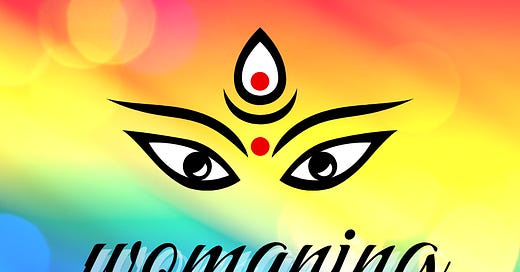


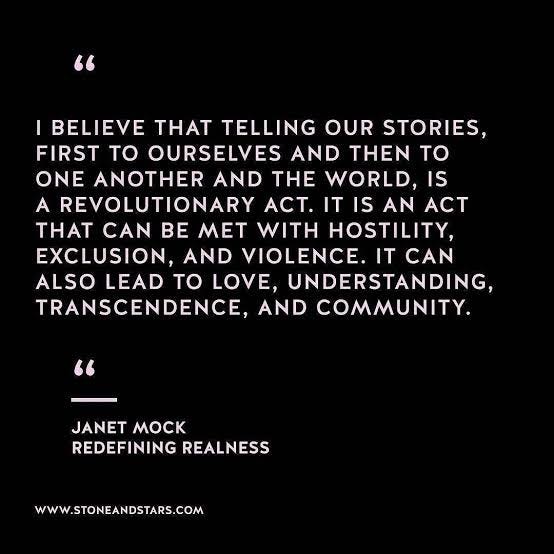
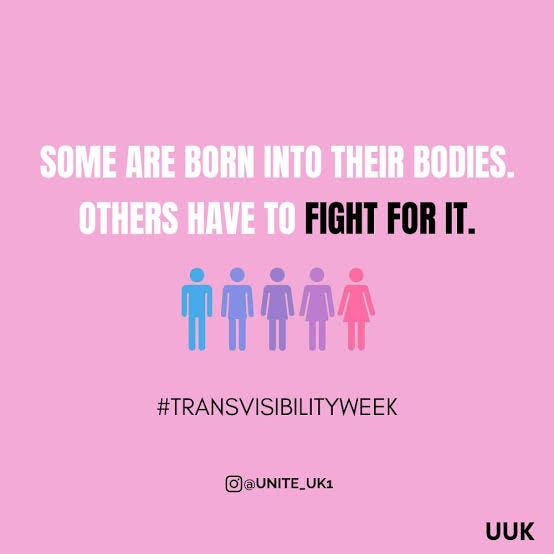

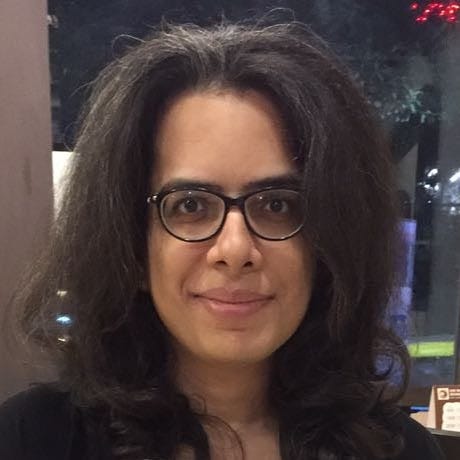
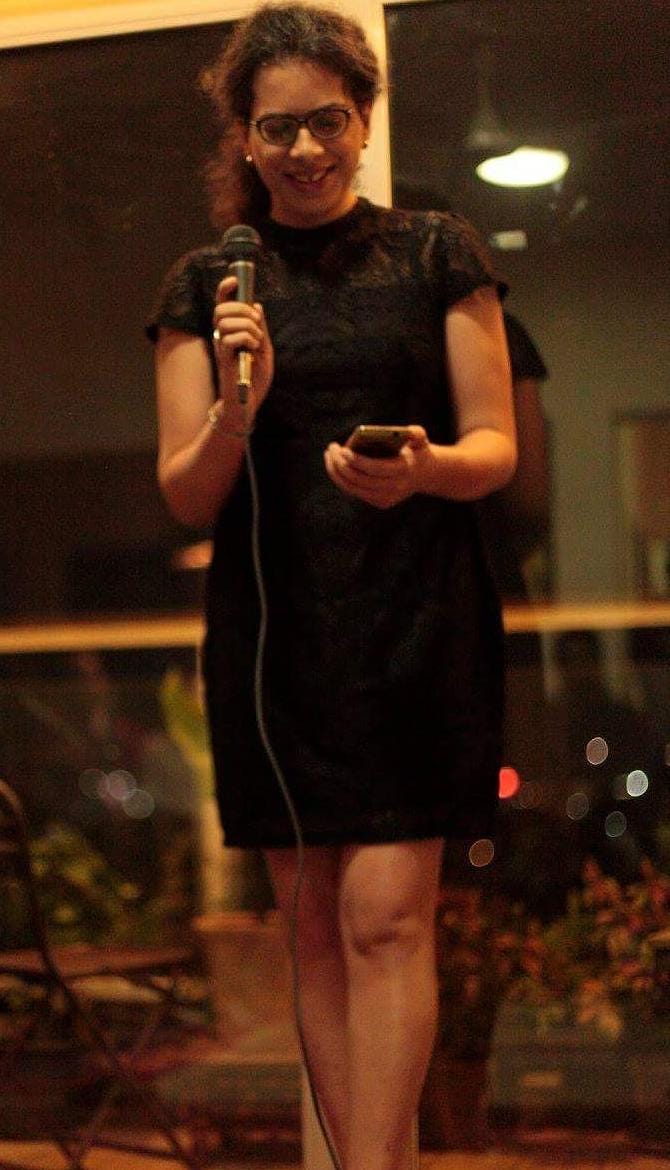
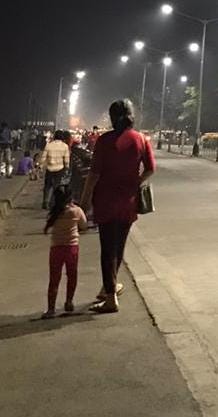
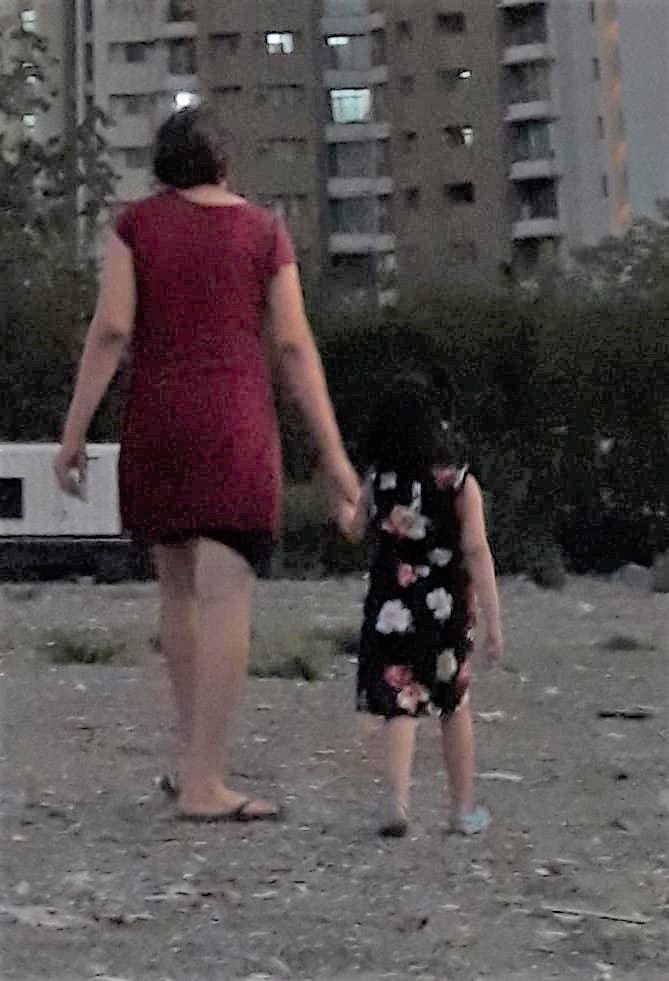
Thank you for this! We could all learn to be better and to do right by the queer folk.
This was enlightening